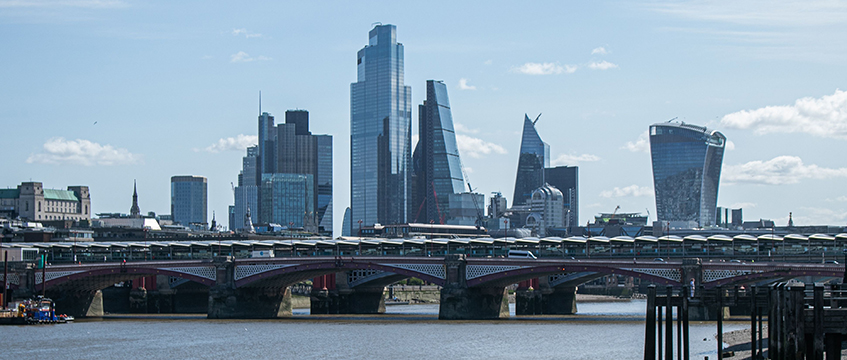Overseas investors should be lured back to UK real estate in the coming months by the avoidance of a “no-deal” Brexit and a relatively speedy roll-out of Covid-19 vaccines, according to analysts at UBS Asset Management.
Zachary Gauge, a director for European real estate research at UBS, told EG the trade deal struck between the UK and European Union in December had prompted “a sigh of relief rather than a cause for celebration”, but would nonetheless reassure investors that had shied from buying UK assets as the agreement was hammered out.
Likewise, the UK’s vaccination programme – currently outpacing that of other European countries – should drive an uptick in deals, Gauge added.
“I wouldn’t say the UK has been off foreign investors’ agenda, but there have been plenty of foreign buyers who would have been cautious towards the UK and a large number who wouldn’t have invested because of the downside risk of a no-deal [Brexit] both on the market and the currency,” Gauge said.
“If we are able to move quicker through the vaccination process than other countries, which looks to be the case at the moment, and have the borders open to non-EU travel by Q3 and those overseas buyers are able to get physically back into the market, we definitely think there’s pent-up demand.”
The pricing differential between the UK and other European countries remains attractive, Gauge added. “You can pick up a central London office building, prime in the City at 4% or maybe 4.25% [yield] and your alternative is 2.5% in Paris. In a very low-yielding world, the UK yields are attractive.”
Gauge spoke ahead of the publication of UBS Asset Management’s latest report on the outlook for UK real estate, in which the team said it is “not unrealistic to expect some return to normality in the second half of the year”.
On the Brexit deal, the firm said concerns about financial jobs leaving London have not come to pass in the kind of numbers once feared, and that it now expects “lower headcount growth in central London, rather than significant loss of employment”.
Gauge said the longer-term impact of the coronavirus pandemic on working practices and office occupation are also likely to be less pronounced than once thought.
“At the very start, we were always pretty sceptical about all the CEOs who came out saying ‘we don’t need the office anymore’,” he said.
“Yes, [working from home] has worked better than most people expected but, particularly now it’s dragged on for so long, both the challenges of homeworking and the benefits of the office have really started to emerge in a lot of people’s minds… By and large, most employees are saying they want a hybrid approach and increased flexibility – they like working from home two or three days a week, and they like to be in the office two or three days a week. What we expect to see this year and certainly next year is the implementation of [that approach].”
To send feedback, e-mail tim.burke@egi.co.uk or tweet @_tim_burke or @estatesgazette











